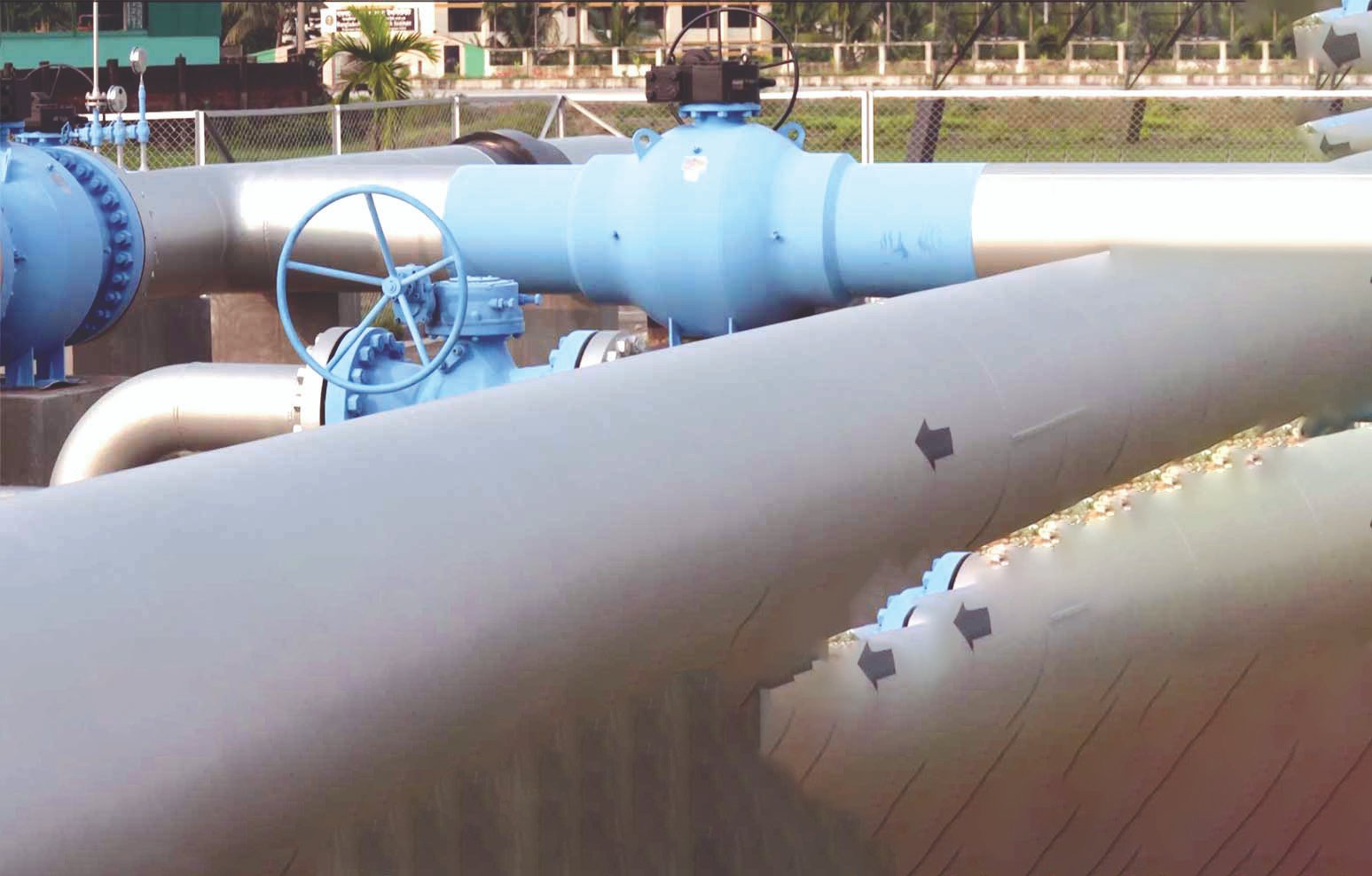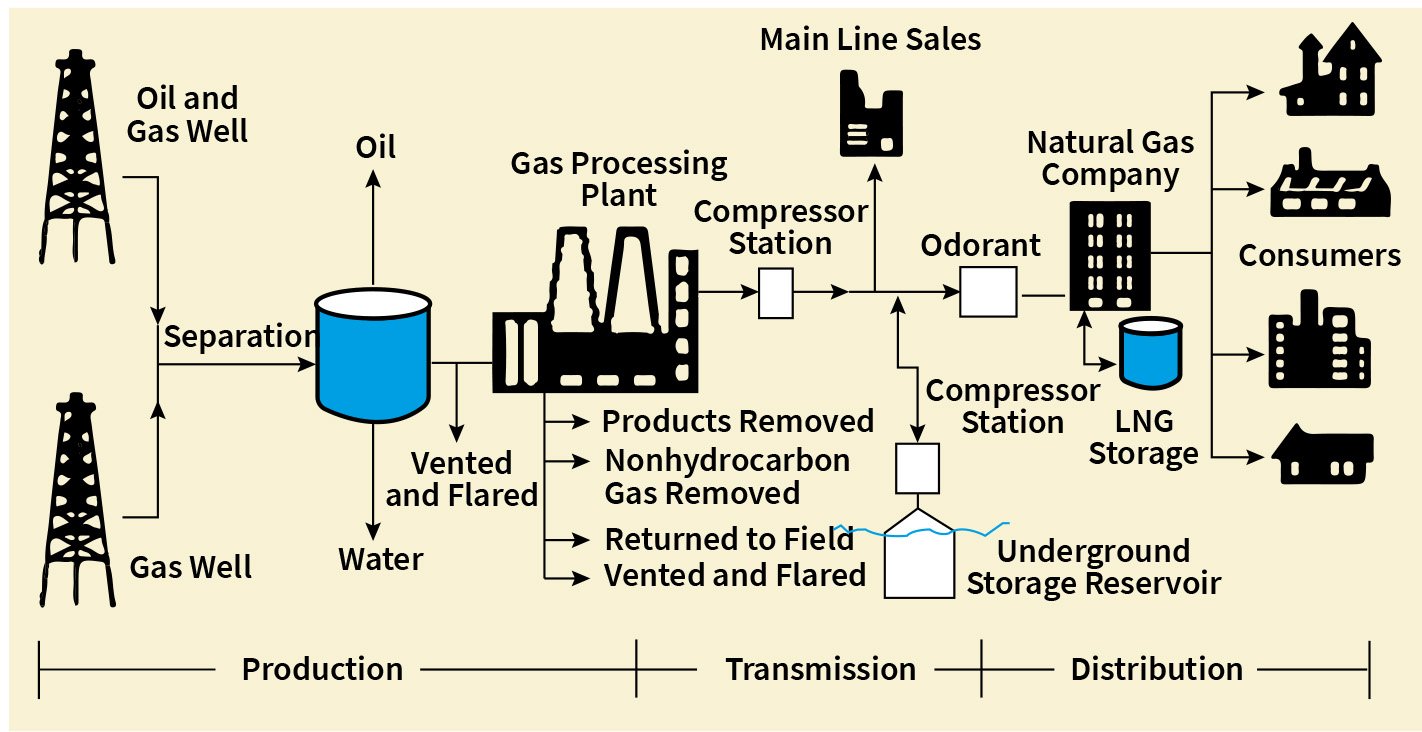
From both an energy efficiency and methane (CH₄) emission reduction standpoint, Bangladesh’s gas supply chain has now become critically important. Methane is emitted from gas fields at the wellhead, from treatment plants, and through flaring in gas transmission and distribution systems. Petrobangla companies routinely monitor losses and emissions as part of their operations and maintenance, but credible reports suggest that significant methane leakage occurs across the entire gas supply chain. If these fugitive emissions were professionally audited, identified, and fixed, Bangladesh could save valuable gas currently being wasted—while also cutting greenhouse gas emissions.

At present, the gas system faces a deficit of about 1,200 million cubic feet per day (MMCFD), and the gap continues to widen. According to Petrobangla, total demand stands at roughly 4,000 MMCFD, while maximum supply, including 1,050 MMCFD of imported LNG, reaches only about 2,800 MMCFD. Experts believe that a comprehensive audit of the gas supply chain—from production to transmission and distribution—could identify sources of leakage and loss. Effective remediation could save as much as 200 MMCFD of gas, easing pressure on the overstressed system while reducing environmental degradation caused by methane emissions.
Such an audit could be conducted by the Energy Auditors of the Bangladesh Energy Regulatory Commission (BERC), or a joint team from BERC and the Department of Environment (DOE). Gas fields in Bangladesh are operated by Petrobangla subsidiaries – BGFCL, BAPEX, and SGFL – as well as two international oil companies (IOCs), Chevron and Tullow. Every gas field flares gas as part of its system operation, though the technology used varies widely – from outdated setups to more modern systems. A gas system expert visiting Bangladesh’s gas fields would notice differences in flare color and composition, suggesting variations in methane loss. Some fields may be emitting more than the allowable threshold, which could be reduced through modernized treatment facilities. This would not only save gas but also significantly curb methane emissions.
While DOE is expected to set parameters for gas flaring, it remains unclear whether these are consistently monitored. The operational standards of IOCs and Petrobangla companies differ greatly – IOCs typically follow strict operational protocols and rigorous monitoring, while Petrobangla entities often lag behind. This is not to discredit Petrobangla, but some of its plants, such as those at Beanibazar, Koillashtilla, and Bakhrabad, still operate with outdated technology. These facilities were designed decades ago based on the gas composition of virgin wells. Over time, the gas composition, as well as water and condensate ratios, have changed, likely increasing methane loss. For instance, the flares at Beanibazar and KTTL-2 show signs of higher methane emissions, though it’s unclear whether the flared gas composition is regularly analyzed. Therefore, a comparative case study between an IOC-operated and a Petrobangla-operated field could yield valuable insights.
The Gas Transmission Company Ltd. (GTCL) is responsible for transporting gas from the fields to designated custody transfer metering (CTM) stations. These meters should be regularly calibrated, and the quality and composition of delivered gas monitored through online or mobile chromatographs, something audit teams can verify. The GTCL network ideally should include smart meters, a fully functional SCADA system, and leak detection devices. Smart cathodic protection systems would further ensure network integrity. Aside from metering inaccuracies, the transmission system should have minimal gas losses. GTCL delivers gas to distribution companies through CTM stations, but it is uncertain whether all interfaces between transmission and distribution systems have modern metering systems. An audit could review these arrangements and help resolve long-standing disputes over metering accuracy once and for all, aligning Bangladesh’s practices with global standards.
However, the major sources of leakage and loss lie within the distribution networks. Much of this stems from aging infrastructure built in the 1970s through the 1990s. Other losses result from illegal connections and pilferage. There are widespread allegations of thousands of unauthorized gas taps. Despite regular disconnection drives, companies such as TGTDCL, KGDCL, and BGDCL struggle to control illegal usage. Distribution companies should adopt digital mapping and GIS-based monitoring to strengthen oversight. The Energy and Mineral Resources Division (EMRD) and Petrobangla must also seriously consider phasing out gas pipelines in densely populated city areas such as Greater Dhaka and Chattogram, where leak risks are high. Within the next two to three years, Bangladesh should fully transition domestic and commercial consumers to LPG, even if subsidies are required.
The country simply cannot afford to waste gas—especially imported LNG—when the economy is under strain. Moreover, deteriorating gas networks not only leak methane but also pose safety hazards, causing fires and explosions.
Conclusion
Bangladesh’s gas supply system cannot expect major improvement in the near term, even with renewed exploration efforts. Supply from existing fields is rapidly declining, and Petrobangla’s exploration work has yet to yield encouraging results. Increasing LNG imports before 2029–2030 also appears unlikely, while potential offshore exploration, even if initiated in 2026 or 2027, may take eight to nine years to deliver results.
In this scenario, saving 200–250 MMCFD of gas through coordinated action would be like finding an oasis in a desert. The interim government should make it a priority to commission a comprehensive gas system audit before leaving office. The EMRD and DOE should form a high-powered team to identify losses, pilferage, and methane leaks, and then implement an emergency action plan to fix them.
Bangladesh may not be able to produce new gas overnight, but it can certainly save what is already being lost. That, too, would be a meaningful step toward energy efficiency, environmental protection, and national resilience.
Saleque Sufi, Energy Expert
Download Special Article As PDF/userfiles/EP_23_10_SA_Sufi.pdf



